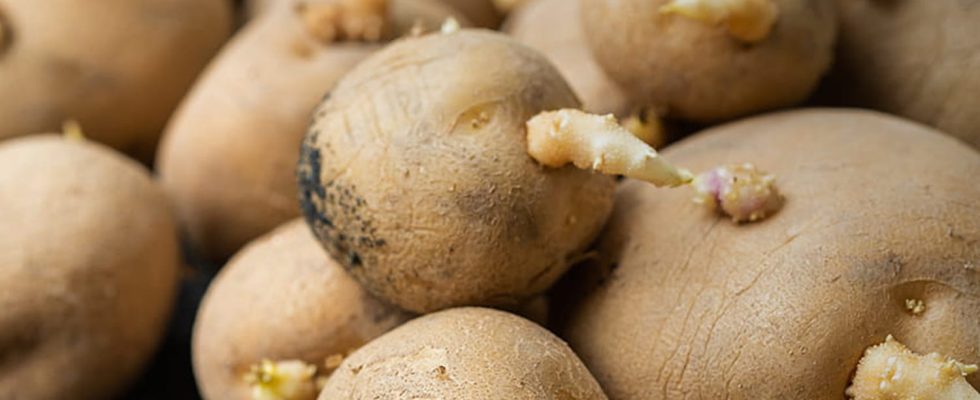These little sprouts appear when the potatoes have been stored in a too hot place. But can you still eat the potatoes or should you throw them away?
Finding sprouts on your stored potatoes is a common but annoying problem for many households. The question that then arises is whether these budding tubers are still good for consumption. To answer this, it is crucial to look at the germination process and its consequences on the quality of potatoes.
Sprouts are the result of a natural process of the plant seeking to reproduce. When potatoes are kept too long, especially in hot conditions, their dormancy is broken and they begin to grow small roots and stems. This is a signal that the potato is transitioning from dormancy to active growth.
However, sprouts are not just a sign of old age or poor preservation; they also contain chemicals like solanine, which can be toxic to humans. Solanine serves as a natural defense mechanism against predators, such as insects and fungi. Ingesting solanine in large quantities can cause unpleasant symptoms, such as abdominal pain, diarrhea, and even fever. It is therefore imperative not to eat the sprouts. However, it should be noted that the risk of poisoning is generally low because it would be necessary to ingest a large quantity of germs to be truly affected.
If you detect sprouts on your potatoes, it is wise to carefully remove them before consuming the tubers. Potatoes from which the sprouts have been removed remain edible provided that the rest of the tuber is firm and not greenish, also a sign of the presence of solanine.
The texture and nutritional value of sprouted potatoes may also be affected. They often become harder and their vitamin content may decrease. To prevent germination, proper storage is essential. Potatoes are best stored in a cool (ideally around 7 to 10 degrees Celsius), dry place away from light, which slows down the germination process considerably. Places like a cellar or pantry are wise choices.
If you decide not to eat sprouted potatoes, don’t necessarily throw them away. They can have a second life in your garden. Plant them in an empty bag of potting soil or directly in your vegetable garden. With a little care, these potatoes will grow into plants which will, in turn, produce new potatoes. This can be an interesting educational experience, especially if you have children at home, and a great way to practice green recycling.
